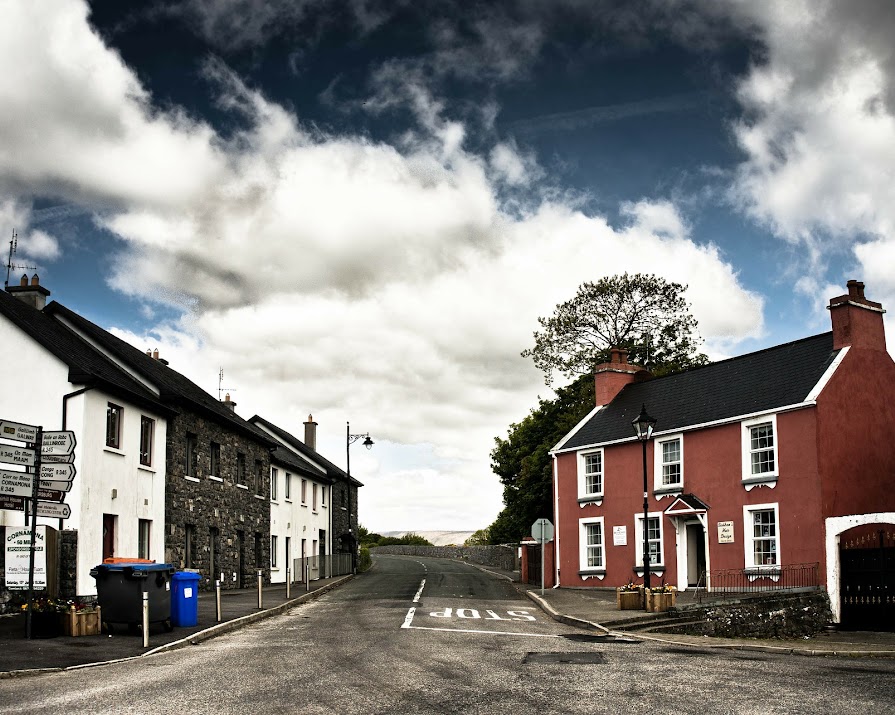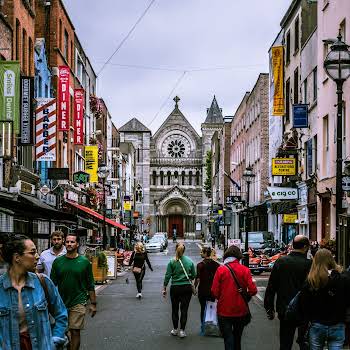
By Edaein OConnell
25th Feb 2019
25th Feb 2019
Is rural Ireland dying?
Some have said it’s a myth. Former Kerry footballer Pat Spillane thinks the same and that the talk is just continued negativity outside of Dublin. I don’t think that. I believe the current narrative encompassing the decline holds some truth. Why? Because I grew up there.
A person’s reasoning can be subjective. Figures say an awful lot about a situation, but do little to understand the psyche of an environment and the underlying nuances. I have lived in both sides of the spectrum; the country life and the cosmopolitan dazzle. I view this Ireland from the eyes of my generation and the way in which we feel and respond to the current climate. Talk of rising populations and depleting unemployment levels in rural areas have no impact on a person in their twenties who can’t find work in their field at home.
The death of rural Ireland
I was fourteen when the recession hit. I lived in a rural area which was a ten-minute drive from the main town. As a school-goer in that town, I witnessed first-hand the dwindling of shop fronts, bars and restaurants. The spread of youth to pastures-new and better equipped to provide a life for them. I lived in ‘the sticks’ as many like to call it, near a country pub and small post office; once again I was exposed to a decline of an old life.
Ireland was changing before the recession hit. The DNA of many small towns and villages had been changed by online retail, which took precedence over local shops. Stricter drink-driving laws changed the local drinking culture which had thrived for years before. Change is inevitable; and often brings a more positive future. But action must be taken to enable towns to burgeon in a different way. However, in the case of rural Ireland, this never happened.
I love my home and I’m proud to say it, but I couldn’t live there now. The idea of being able to start my career, have a decent social life and be in close proximity to my friends there is whimsical. I chose Dublin firstly for education reasons, and then subsequently for my career. I am unable to gain the opportunities I need anywhere else. Not even Cork, Galway or Limerick can provide that security; and many of my age group agree those cities can’t provide enough stability.
My choice is made, but deep down the dream is home. Recently, a family member was both shocked and delighted when I mentioned a friend of mine would love to settle down in our hometown. She replied that it was nice to know there would be people there to keep the town alive. Because when her generation are gone, who will be there to save it?
Like cities, rural areas have their fair share of issues with drugs, crime, and anti-social behaviour, particularly among young people. But there is nothing there for them. There is a lack of services, transport, jobs, and a lack of a fulfilling social life. Then there is the unprecedented push to Dublin. There is a whole country that exists outside of the walls of Dublin city, but sometimes you get a distinct feeling that to the government, Dublin really is the only place in Ireland.
This isn’t a culchie/city divide. I have experienced both, and Dublin feels (at times) like a completely different world to the rest of the country. The city is becoming consistently overcrowded by the day; the housing crisis is at an all-time high, rent prices are extortionate and we can say goodbye to saving. Times are difficult, especially when the government seems to think they can house the entirety of Ireland in a four-bed in Rathmines.
Nevertheless, the multinationals, the corporations, the companies – all of the jobs needed – are located there. The country is capital-centric.
Dublin isn’t for everyone
Not everyone wants to relocate to Dublin. There are quite a few who don’t. Some friends of mine point-blank refuse to, because they can’t afford it and are afraid the cost of living will outweigh their means. Other friends relocate against their wishes because they have had to, to get their start – because the next choice would be to leave Ireland completely.
I can only speak from my own experience. I understand initiatives such as men’s sheds have begun; local buses carrying people to the country pubs works in some areas, but extra taxi services won’t compensate for the losses already felt. From my perspective, there is nothing being done to keep us at home. There still isn’t enough being done to revitalise and invigorate rural Ireland, for all ages. The government’s agenda doesn’t care for the local shops, bars and restaurants, the schools, the GAA clubs, the care centres, the hospitals; all the things that keep a community’s heart beating.
Within that heart, are people who strive to make their community better. There are vivacious, colourful and omnipresent towns across the country, that have been renewed through the sheer grit and determination of its clan. Take Listowel, for instance, Ireland’s tidiest town. A town which has its own share of problems, but at the centre is a community filled with immense pride of place. The Tidy Town committee worked endlessly over the years for the prize, and the effects have already been noticed; with many from afar coming to discover how Listowel, a small town, won the biggest prize of all.
Sadly, you drive through many more towns which have lost their vibrancy, colour and soul. They are desolate and dreary; a shadow of what they once were. You quickly realise that not even the strength of a community can save it from the brink. They become, in essence, a shattered reflection of an old Ireland.
Rural Ireland and its towns and villages can be reclaimed, but not until the government provides a substantial plan. This plan must not only preserve the old ways, but also provide new and regenerative policies which can change the face of rural Ireland for the better. Because change is good. Change can keep and inspire future generations to stay.
And change can bring us home.























